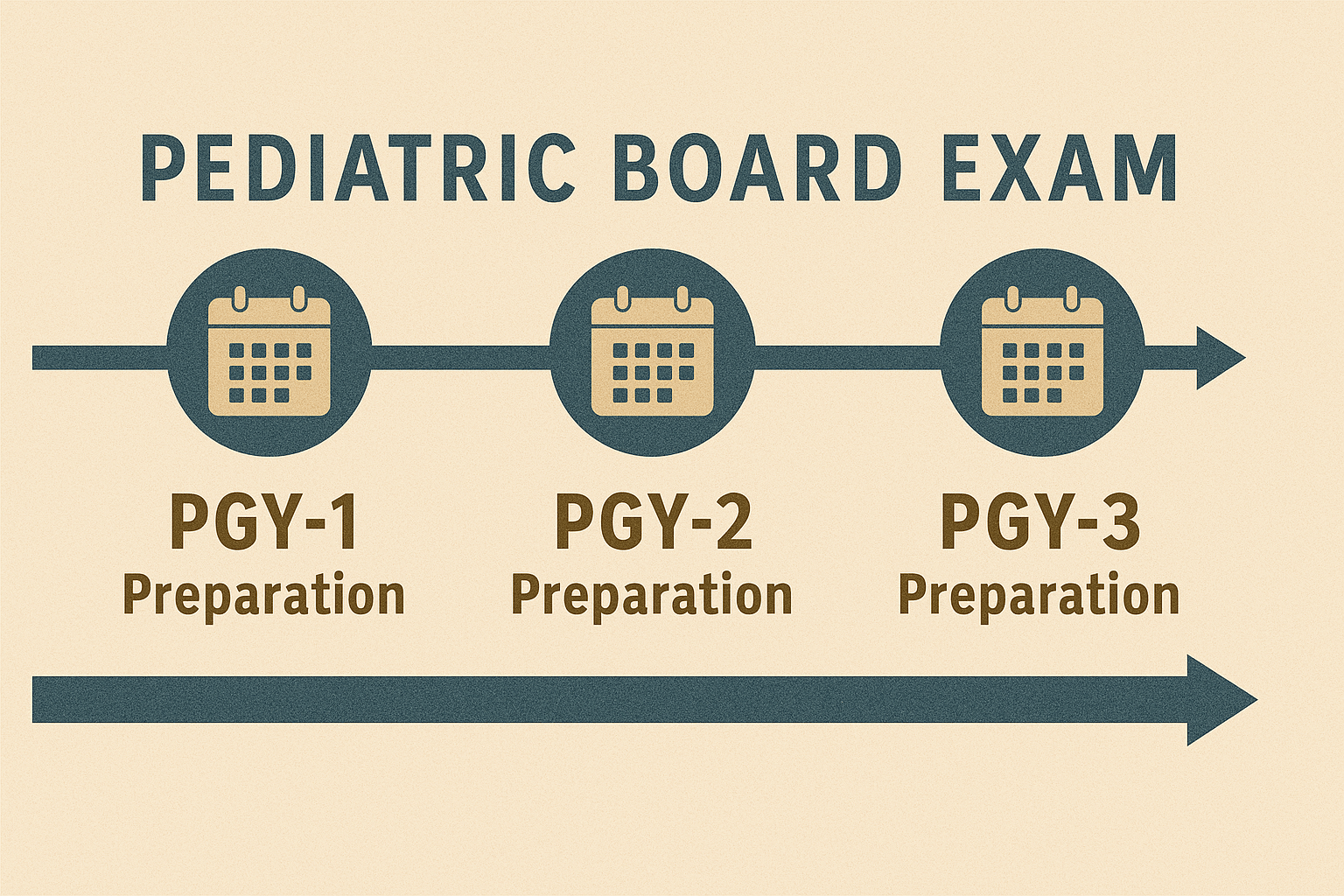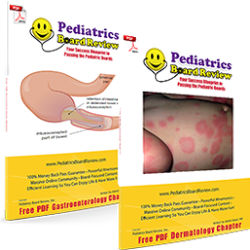Pediatric Board Study Tips for Pediatric Residents
A pediatric residency is three years, and during that time you can lose a lot of the good study habits and test-taking skills that you gained during medical school. And let’s face it—when you’re in your residency, you’re not always hitting the books. You’re probably working 80-hour weeks during your residency and it can seem impossible to get any studying done for the pediatric boards.
But there are small habits that you can get into during your residency that will better prepare you for your pediatric boards—little things that may not seem like much at the time, but they really do make a difference.
It’s easy to procrastinate and push the boards to the back of our minds because they’re not coming up right away. This is a bad strategy. The boards will happen at the end of your residency, and when they do come, you’re going to wish you had spent more time preparing for them.
So what can you do to study for your pediatric boards during your residency?
Studying For Your Pediatric Boards During Pediatric Inpatient Rotations
When you’re doing an inpatient pediatric rotation, you’re often moving at a frantic pace. You’re probably working with eight to ten patients, moving from one to the next (and the next and the next…). Here’s what you can do. Stop for a moment, maybe 1-3 minutes, to study the biggest problem with each patient.
You don’t even need to sit down at a computer. In the hall, pull up the PBR study guide on your phone and search for their primary condition, read a brief synopsis on the topic, or dive a little deeper if you have a problem that’s stumping you. This micro-studying approach will take very little time, but by the end of the shift you will have familiarized yourself with board-relevant information that you can also share during morning rounds to amaze your attending physician.
This process alone will put you ahead of 90% of the pack because most pediatric residents put off studying for their boards until the last possible moment. Then comes the mad scramble to relearn everything they’ve forgotten and learn about many new disorders they never even had the opportunity to encounter during residency.

Studying For Your Pediatric Boards During Elective Rotations
Pediatric board study tips for when you are on elective rotations revolve around using that time to read through at least one full chapter. There are some sections of the pediatric boards, like infectious disease, for example, that are in-depth and require some major study. While you’re working on an elective rotation, you’ll have more time to devote to entire chapters of the study guide—especially when it’s related to the elective rotation you’re working on. So, while you’re doing cardiology, study your pediatric cardiology chapter. While you’re doing a neonatology rotation, study your neonatology chapter.
It’s easier to learn about cardiology while you’re surrounded by cardiology patients and a cardiologist. It’s easier to learn about infectious disease while you’re immersed in an infectious diseases rotation and you have an attending physician to discuss topics with every day.

Watch Your Free Video Training Session Now
Learn HOW to Answer Board Style Questions &
Be a Better Test Taker
Maintain Your Studying Skills and Develop Test-Taking Skills

Test taking is about knowing the material and having good test-taking skills. You have to know the information, be good about time management, understand the question formats, and recognize patterns. While in medical school, you were a studier because that was your one job. Once you’re deep into residency, it can become very difficult to establish good study habits due to fatigue and distractions from your real job.
Since the American Board of Pediatrics (ABP) initial certification exam will be the hardest exam of your life, it’s important to put in the right amount of time and effort to pass the exam. To best prepare, first off, use our Risk Calculator. This will determine your risk profile for failing the boards and provide a clear plan based on that profile. Here are some of the danger signs we look for in the Risk Calculator:
- A history of struggling to pass ANY medical board exam
- A history of board scores that are usually lower than the national average
- Residency training at an “at risk” residency program
- And there are more. (You can find our entire list of risk factors here.)
Once you know your risk profile, you can choose a study method that’s best for you. Our study guides emphasize three things: Content, Technique, and Commitment. All three are essential for you to pass the pediatric boards. You must know the content inside and out, which means that even a moderate amount of studying throughout your residency will help immensely. You must develop good testing technique, which means taking the time to understand how to process different types of board-style questions and then practicing your new test-taking skills until you master them. And, you must have the commitment to follow through with these things throughout your residency.
A three-year residency may seem like a long time to prepare for your boards, but it’s only useful if you are steadily doing some work during those years. This is not a test that you can cram for at the last minute.
Studying is Easier With a Partner

We know, through experience, that studying is considerably more effective if it’s done with a partner. So, we’ve prepared our programs with a considerable discount if a fellow resident signs up for our study guides with you. You’ll both have the benefit of our efficiency-driven study tools and materials, all for a lower price. Plus, you’ll have a partner to bounce ideas back and forth, get immediate feedback, quiz one another, and have much needed moral support. There’s no underestimating the value of a good study partner.
Make Use of Your Book Fund
If a book fund is available to you through your residency program, you can use those funds with Pediatric Board Review to get our courses and study guides. We are very accustomed to working with department staff to get orders processed quickly. This is a great way to maximize every dollar at your disposal!
Stretch Your Studying Over Years

If you’re a PGY1 or PGY2 needing access for multiple years, you can also get massive discounts through PBR. So, not only are you getting the benefit of starting your studying early during the early years of your pediatric residency training, but you’re able to save money too! It’s a win-win.
Over the last decade, PBR has helped over 10,000 pediatricians prepare for their board exams. We’re excited to help you on this journey!




